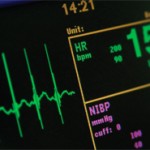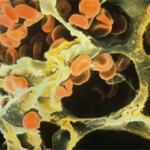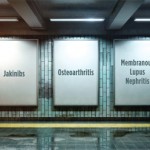NEW YORK (Reuters Health)—Adverse drug events (ADEs) are more common when drugs are used off label, especially when the off-label use lacks strong scientific evidence, researchers from Canada report. “Our study demonstrated that physicians need to be cautious in prescribing off-label when there is a lack of strong scientific evidence for the use of the…
Search results for: central nervous system
Treating IBD with Anti-TNF Tied to Higher Risk of Demyelinating Disease
NEW YORK (Reuters Health)—Treating inflammatory bowel disease (IBD) with tumor necrosis factor (TNF) inhibitors is associated with a doubling of the risk of central nervous system demyelinating disease, researchers from Denmark report. “Based on the current evidence anti-TNF should be used cautiously in patients with an own or family history of demyelinating disease,” Dr. Nynne…

EULAR 2015: Anti-Inflammatory Drugs with Dual Targets
Antibody-like molecules that can bind to more than one target—with the goal of having a more powerful effect than if those targets were treated separately in a combination of therapies—could become part of treatment regimens in rheumatic diseases over the next several years, an expert said here in a session at EULAR 2015, the annual…

Heart Rate Variability to Predict Treatment Response in Patients with RA
A growing understanding of the immunomodulatory effect of the autonomic nervous system (ANS) is edging closer to having clinical applications that could one day benefit patients with rheumatoid arthritis (RA). Researchers pursuing this as an alternative path to biomarkers are investigating whether autonomic status can be used to predict response to therapy. Seattle-area rheumatologist and…

Catastrophic Antiphospholipid Syndrome with Pulmonary Hemorrhage: A Case Report
Antiphospholipid syndrome (APS) is an autoimmune condition characterized by hypercoagulability often manifested as recurrent thrombosis or pregnancy complications, with persistently circulating antiphospholipid (aPL) antibodies or lupus anticoagulant. Catastrophic APS (CAPS), also known as Asherson syndrome, occurs in less than 1% of cases of APS and involves occlusive microangiopathy in at least three organ systems.1 Case…

The ACR’s State-of-the-Art Clinical Symposium: Experts Discuss Jakinibs, Osteoarthritis, Membranous Lupus Nephritis
CHICAGO—With the approval of the Jak inhibitors (i.e., jakinibs) tofacitinib and ruxolitinib—and others being investigated—rheumatologists need to arm themselves with an understanding of these drugs so they can think critically when evaluating them and deciding how to use them, said John O’Shea, MD, chief of the Molecular Immunology and Inflammation Branch of and scientific director…

How Celebrities, Senators, Dietary Supplements Muddle Medicine
It’s disheartening to stand by and watch helplessly as your patient dies a slow, painful death. In spring 1990, I had the misfortune of living through such a distressing experience. Strange happenings in New Mexico & Japan Ellen was a bookkeeper in her late 40s, living quietly in suburban Boston. For years, she hid a…
Isometric Exercise May Immediately Reduce Pain of Patellar Tendinopathy
NEW YORK (Reuters Health)—Volleyball players with patellar tendinopathy reported an immediate easing of their pain after isometric exercise, and the effect persisted for 45 minutes after the intervention, a new study has found. In contrast, isotonic exercise appeared to diminish the athletes’ pain to a lesser degree, and the effect did not last at the…
2014 ACR/ARHP Annual Meeting: Sjögren’s Complications
Tips to screen for, treat central or peripheral nervous system disorders, lymphoma in patients with Sjögren’s syndrome
Atherosclerosis, Cardiovascular Disease More Common in Patients with Primary Sjögren’s Syndrome
Study adds to research linking increased risk of morbidity, early mortality from CV events among patients with systemic autoimmune diseases
- « Previous Page
- 1
- …
- 11
- 12
- 13
- 14
- 15
- …
- 21
- Next Page »